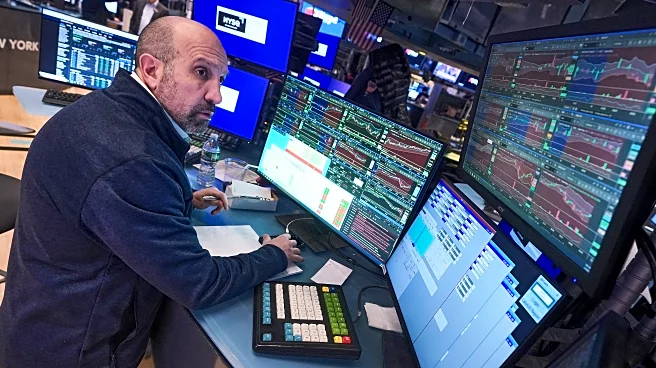What's Happening?
Global markets displayed mixed reactions as investors awaited insights from the Federal Reserve's annual Jackson Hole meeting, where Federal Reserve Chair Jerome Powell is expected to speak. The anticipation comes amid a backdrop of Wall Street experiencing its fifth consecutive day of losses, influenced by disappointing earnings from major companies like Walmart and ongoing concerns about potential interest rate cuts. The S&P 500, Dow Jones Industrial Average, and Nasdaq all saw declines, with the bond market experiencing notable movements as Treasury yields rose. This market behavior reflects investor caution as they seek clarity on the Federal Reserve's stance on interest rates, especially in light of recent inflation data and economic indicators.
Why It's Important?
The Jackson Hole meeting is a pivotal event for global financial markets, as it often provides critical insights into the Federal Reserve's monetary policy direction. The potential for interest rate cuts has significant implications for the U.S. economy, affecting borrowing costs for consumers and businesses. A rate cut could stimulate economic activity by making loans cheaper, but it also risks exacerbating inflation, a concern highlighted by recent economic data. The Federal Reserve's decisions are closely watched by investors worldwide, as they influence global financial stability and economic growth. The outcome of this meeting could impact market confidence and investment strategies, affecting stakeholders ranging from individual investors to multinational corporations.
What's Next?
Following the Jackson Hole meeting, market participants will closely analyze Powell's remarks for any indications of future monetary policy adjustments. The Federal Reserve's approach to balancing inflation concerns with economic growth will be scrutinized, especially given President Trump's previous calls for rate cuts. Investors will also monitor upcoming economic reports, such as job growth and inflation data, to gauge the likelihood of policy shifts. The Federal Reserve's decisions in the coming months will be critical in shaping the economic landscape, influencing everything from consumer spending to corporate investment strategies.










